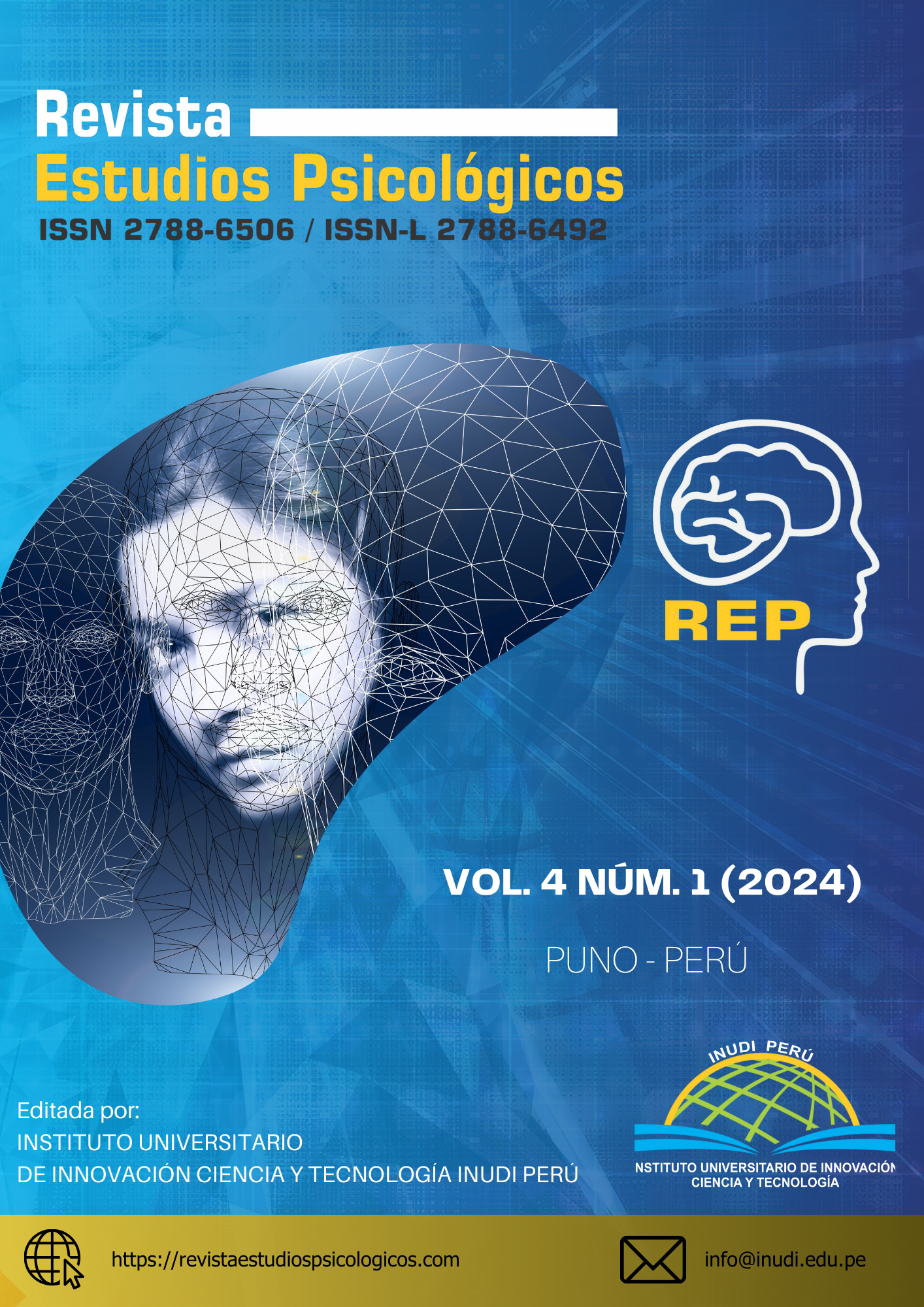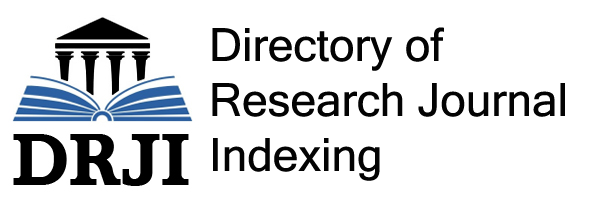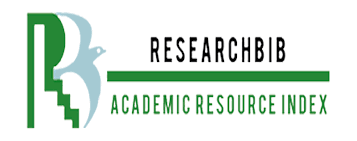Metacognitive skills in relation to learning achievement in dentistry entrants from a public university in the Peruvian highlands
DOI:
https://doi.org/10.35622/j.rep.2024.01.003Keywords:
metacognitive skills, newcomers, metacognition, university studentsAbstract
The aim of the study conducted was to relate metacognitive skills to learning achievement in freshmen entering the Dentistry program at the National University of the Altiplano in Puno - Peru. The study adopts a quantitative approach, with a correlational level and a non-experimental design. It is observational, prospective, and cross-sectional. The sample consisted of a total of 45 freshmen, selected through consecutive non-probabilistic sampling, as all individuals in the population who met the inclusion and exclusion criteria were considered. The technique used to measure the variable of metacognitive skills was a survey, with the instrument used being the Metacognitive Awareness Inventory (MAI). Learning achievement was measured using documentary analysis through reviewing the averages achieved by the freshmen. The results showed that there is a relationship between metacognitive skills and learning achievement in freshmen (p=0.000). Metacognitive skills in their knowledge dimension were predominantly at a high level (67.4%), as were those in their cognition regulation dimension (60.5%). Freshmen's learning achievement was predominantly acceptable (67.4%). Both male (20.9%) and female (37.2%) students predominantly exhibited a high level of metacognitive skills, and similarly, students from both public and private schools mainly had a high level of metacognitive skills. The study concludes that there is a statistically significant relationship between metacognitive skills and learning achievement, which supports the implementation of induction programs for freshmen before they begin their university academic activities, considering not only academic aspects but also metacognitive skills.
Estadísticas del Artículo
References
Abdelrahman, R. M. (2020). Metacognitive awareness and academic motivation and their impact on academic achievement of Ajman University students. Heliyon, 6(9). https://doi.org/10.1016/j.heliyon.2020.e04192 DOI: https://doi.org/10.1016/j.heliyon.2020.e04192
Adigüzel, A., & Orhan, A. (2017). The Relation between English Learning Students’ Levels of Self-Regulation and Metacognitive Skills and Their English Academic Achievements. Journal of Education and Practice, 8(9), 115–125.
Alcas Zapata, N., Alarcón Diaz, M. A., Alarcón Diaz, H. H., Gonzáles LLontop, R., & Rodríguez Fuentes, A. (2019). Estrategias metacognitivas y comprensión lectora en estudiantes universitarios. Apuntes Universitarios, 9(1). https://doi.org/10.17162/au.v1i1.348 DOI: https://doi.org/10.17162/au.v9i1.139
Aljaberi, N., & Gheith, E. (2015). University Students’ Level of Metacognitive Thinking and their Ability to Solve Problems. American International Journal of Contemporary Research, 5(3), 121–134.
Barahona G., R. A., & Aparicio, A. S. (2020). Conciencia metacognitiva en ingresantes universitarios de ingeniería, arquitectura y ciencias aeronáuticas. Propósitos y Representaciones, 8(1). https://doi.org/10.20511/pyr2020.v8n1.272 DOI: https://doi.org/10.20511/pyr2020.v8n1.272
Baser, E. H., & Demir, S. (2022). Investigation of the Relationship of Self-Efficacy, Self-Regulation and Metacognitive Awareness with Academic Performance through Artificial Neural Networks. Academy Journal of Educational Sciences, 6(2), 85–96. https://doi.org/10.31805/acjes.1221980 DOI: https://doi.org/10.31805/acjes.1221980
Bortone, R., & Sandoval, A. (2014). Perfil metacognitivo en estudiantes universitarios. Investigación y Postgrado, 29(1), 129–149.
Çetin, B. (2017). Metacognition and Self-regulated Learning in Predicting University Students’ Academic Achievement in Turkey. Journal of Education and Training Studies, 5(4), 132. https://doi.org/10.11114/jets.v5i4.2233 DOI: https://doi.org/10.11114/jets.v5i4.2233
Chaverra, D. (2011). Las habilidades metacognitivas en la producción de textos digitales: una experiencia de aula en la educación básica primaria (1ra edición). Ed. Universidad de Antoquía.
Córdova, F., & García, A. (2011). Adaptación del Inventario de Conciencia Metacognitiva. Universidad de San Martín de Porres.
Coşkun, Y. (2018). A Study on Metacognitive Thinking Skills of University Students. Journal of Education and Training Studies, 6(3), 38. https://doi.org/10.11114/jets.v6i3.2931 DOI: https://doi.org/10.11114/jets.v6i3.2931
Fernández Da Lama, R. G. (2019). Evaluación de la metacognición sobre el estudio en estudiantes de psicología. Psicoespacios, 13(22), 62–76. https://doi.org/10.25057/21452776.1198 DOI: https://doi.org/10.25057/21452776.1198
Hou, Y.-J. (2015). Reciprocal Teaching, Metacognitive Awareness, and Academic Performance in Taiwanese Junior College Students. International Journal of Teaching and Education, III(4), 15–32. https://doi.org/10.20472/te.2015.3.4.003 DOI: https://doi.org/10.20472/TE.2015.3.4.003
Hurtado, A. L. (2017). Los procesos cognitivos: Metacognición como proceso de aprendizaje. Educación, 23(1), 19–24. DOI: https://doi.org/10.33539/educacion.2017.n23.1165
Manzanares, M. C. S., & Valdivieso-León, L. (2020). Relationship between academic performance and development of self-regulation strategies in universities students. Revista Electrónica Interuniversitaria de Formación Del Profesorado, 23(3), 49–65. https://doi.org/10.6018/REIFOP.385491 DOI: https://doi.org/10.6018/reifop.385491
Mazzarella, C. (2008). Desarrollo de habilidades metacognitivas con el uso de las tic. Investigación y Postgrado, 23(2), 175–204.
Meslhy Mohamed, H., Ibrahim Mohamed, A., & Abdeen Abdeen, M. (2020). The Impact of Metacognitive Skills Educational Program on Metacognitive Awareness, Self-Efficacy, and Problem Solving Skills among Nursing Students Impact of Metacognitive Skills Educational Program on Metacognitive Awareness, Self-Efficacy, and Problem Solving Skills among Nursing Students. American Journal of Nursing Research, 8(2), 289–296. https://doi.org/10.12691/ajnr-8-2-19
Ñaupas-Paitán, H., Mejía-Mejía, E., Novoa-Ramírez, E., & Villagomez-Páucar, A. (2014). Metodología de la investigación cuantitativa-cualitativa y redacción de la tesis (4th ed.). Ediciones de la U.
Ortiz, S., & Valencia, A. (2017). Conocimiento metacognitivo en estudiantes de básica primaria. Universidad de Manizales.
Osses Bustingorry, S., & Jaramillo Mora, S. (2008). Metacognición: un camino para aprender a aprender. Estudios Pedagógicos (Valdivia), 34(1), 187–197. DOI: https://doi.org/10.4067/S0718-07052008000100011
Otondo Briceño, M., & Torres Lara, M. del P. (2020). Habilidades metacognitivas de organización en educación superior. Revista Cubana de Educación Superior, 39(2). https://orcid.org/0000-0001-9513-3794
Reyes-González, N., Meneses-Báez, A. L., & Díaz-Mujica, A. (2022). Planificación y gestión del tiempo académico de estudiantes universitarios. Formación Universitaria, 15(1), 57–72. https://doi.org/10.4067/s0718-50062022000100057 DOI: https://doi.org/10.4067/S0718-50062022000100057
Rojas-Ciudad, C. A., & Esquerre-Ramos, L. A. (2021). Estilos de aprendizaje y metacognición en estudiantes universitarios. Pol. Con, 6(6).
Sawhney, N., & Bansal, S. (2015). Metacognitive Awareness of Undergraduate Students in Relation to their Academic Achievement. The International Journal of Indian Psychology, 3(1), 3135–3138. http://www.ijip.in| DOI: https://doi.org/10.25215/0301.136
Smith, A. K., Black, S., & Hooper, L. M. (2020). Metacognitive Knowledge, Skills, and Awareness: A Possible Solution to Enhancing Academic Achievement in African American Adolescents. Urban Education, 55(4), 625–639. https://doi.org/10.1177/0042085917714511 DOI: https://doi.org/10.1177/0042085917714511
Xuan, D., Ismail, W., Zailani, M., & Ismail, Z. (2022). A Study of Correlation between Metacognitive Strategy, Self-Efficacy and Arabic Achievements of University Level Students in Malaysian Public Universities. Al-Ḍād Journal, 6(2), 1–12. DOI: https://doi.org/10.22452/aldad.vol6no2.1
Published
Issue
Section
License
Copyright (c) 2024 Karen Pineda-Palomino, Gian Valdez-Velazco, Brenda Salas-Mendizabal (Autor/a)

This work is licensed under a Creative Commons Attribution 4.0 International License.
La Revista Estudios Psicológicos del Instituto Universitario de Innovación Ciencia y Tecnología Inudi Perú está sobre una licencia internacional Creative Commons Atribución 4.0. Lo que permite que los archivos sean de libre acceso y distribuidos libremente.
LOS AUTORES RETIENEN SUS DERECHOS:
- Los autores retienen sus derechos de marca y patente, y tambien sobre cualquier proceso o procedimiento descrito en el artículo.
- Los autores retienen el derecho de compartir, copiar, distribuir, ejecutar y comunicar públicamente el artículo publicado en la Revista Estudios Psicológicos (por ejemplo, colocarlo en un repositorio institucional o publicarlo en un libro), con un reconocimiento de su publicación inicial.
- Los autores retienen el derecho a hacer una posterior publicación de su trabajo, de utilizar el artículo o cualquier parte de aquel (por ejemplo: una compilación de sus trabajos, notas para conferencias, tesis, o para un libro), siempre que indiquen la fuente de publicación (autores del trabajo, revista, volumen, número y fecha).



















